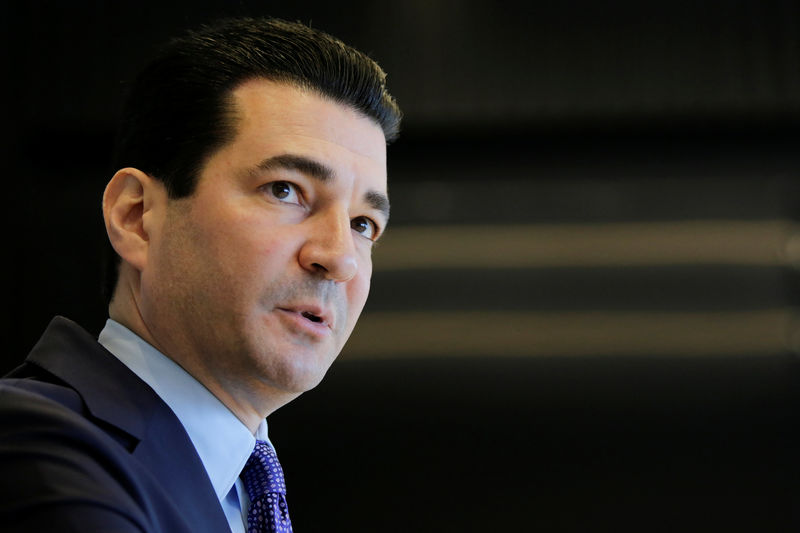By Toni Clarke
(Reuters) - U.S. Food and Drug Administration Commissioner Scott Gottlieb, considered a potential successor to recently departed Health and Human Services Secretary Tom Price, said on Tuesday he believed he could best serve the Trump administration in his current role.
"I feel like I want to continue to follow through on the policies we've put out and it's where I think I can be most effective," Gottlieb told Reuters in an interview in New York.
He declined to say whether he had been approached about the job by the White House. "I'm not going to get into private discussions I might have had around that," he said.
Gottlieb is one of several potential candidates for the top job at HHS, a post vacated by Price last month following an uproar over his use of private jets for government business.
Other names mentioned by health policy experts include Seema Verma, administrator of the Centers for Medicare & Medicaid Services (CMS) and Louisiana Governor Bobby Jindal.
Gottlieb has won mostly positive reviews since taking over as FDA commissioner in May. He has introduced policies tackling some of the country's biggest health challenges, including opioid and tobacco addiction and rising prescription drug prices.
The top post at the FDA has always been difficult to fill, Gottlieb noted, and there have been long stretches where the agency has operated under an acting commissioner.
Gottlieb once served as senior adviser to FDA commissioner Mark McClellan, who left the agency in 2004 after just two years to run CMS, a move that Gottlieb said was detrimental to the agency.
"It's always challenging to move an FDA commissioner," he said. "Continuity of leadership there is important."
In a wide-ranging interview, Gottlieb said the situation on the ground in Puerto Rico, where 10 percent of drugs prescribed in the United States are made, was "very bad" and that shortages of some drugs could emerge within as little as two to three weeks.
He also said the agency is going to more clearly define regulations around cell therapies. The law currently states that if a cell is extracted from a patient's body and more than minimally manipulated it is a drug subject to FDA regulation.
"Historically the FDA hasn't vigorously enforced around that line because it didn't have the implementing guidelines to do that," he said.
At the same time, the agency plans novel measures to make it easier for small academic centers to apply for FDA product approval by pooling data generated from similar work.

"If academicians working at different academic sites are doing a similar procedure with stem cells, if they are all following the same protocol, then they're going to be able to pool their data to submit it for regulatory approval," he said.